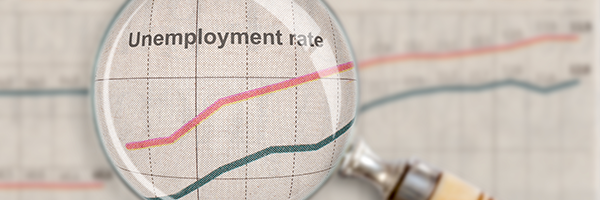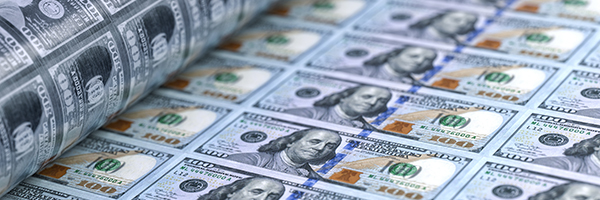Morning Briefing

November 17, 2021 | Daily JAM, Millennial, Morning Briefing, NVDA, Top 50 Stocks |
On Saturday I posted that Nvidia’s (NVDA) earnings report on November 17–that is today–and the market reaction to the company’s quarterly earnings report would tell us a lot about market sentiment and the magnitude of any year-end, market melt up rally.
Wall Street analysts were projecting that the company would announced earnings of 95 cents a share for the quarter that ended in October. That would be a huge 58% increase from the 60 cents a share reported for the October 2020 quarter, I
But, I worried, that much of that number was already in the share price. The stock was up 47% in the last month and 133% for the year to the November 15 close. Would the stock drop if all the company did was meet expectations?

November 16, 2021 | Daily JAM, Morning Briefing, OTLY, Short Term |
U.S. retail sales rose in October for a third month. The value of overall retail purchases increased 1.7% last month, the most in seven months, the Commerce Department said today, November 16. Excluding gas and motor vehicles, sales gained 1.4% in October. The figures aren’t adjusted for inflation. The median estimate in a Bloomberg survey of economists called for a 1.4% advance in overall retail sales.

November 15, 2021 | Daily JAM, Morning Briefing, Short Term |
With stocks trading at record highs, I’d argue that nothing is as important as what “news” is priced in–or not. If stocks have priced in all the likely good news, then there’s much less to drive prices higher–and much more expansive possibilities for drops on disappointments. If there’s likely good news that’s not yet priced in, then stocks have potential fuel to move high. And, on the other hand, if bad news is priced in and fails to materialize, then, hey, we’re going higher from here. And if bad news isn’t priced in, then current record prices aren’t sustainable.

November 11, 2021 | Daily JAM, Morning Briefing |
I don’t care how you want to frame the number, yesterday’s (November 10) report that consumer inflation (as measured by the Consumer Price Index) rose at a 6.2% annualized rate in October was shockingly high. The number is the kind of shock that can derail a rally or reverse a prevailing upward trend. So far, though, the market action says the upward trend through the end of the year is intact.

November 10, 2021 | Daily JAM, Morning Briefing |
In October the headline Consumer Price Index rose 0.9% from September and 6.2% from October 2020, according to the U.S. Labor Department. The increases exceeded all estimates from economists surveyed by Bloomberg. Higher prices for energy, shelter, food and vehicles fueled the surge. Core inflation, which excludes food and energy prices on the grounds that trends in those sectors are more volatile, rose 0.6% from September and at an annual rate of 4.2%. That the fastest pace for annual core inflation since 1991.

November 8, 2021 | Daily JAM, Morning Briefing |
China reported 50 new local Covid-19 infections on Saturday and, per past policy, the country moved to curb travel and to lock down some of the affected areas. Those measures aren’t unexpected ahead of the February 2022 winter Olympics in Beijing. But nonetheless these restrictions are just going to make some parts of the chaos in the global supply chain even worse.

November 5, 2021 | Daily JAM, Morning Briefing |
This morning the Bureau of Labor Statistics reported the U.S. jobs numbers for October. The official unemployment rate fell to 4.6% in October. That’s down from 4.8% in September and better than the drop to 4.7% expected by economists surveyed by Bloomberg.
The economy created 531,000 jobs in the month. Way ahead of the disappointing 194,000 initially reported for September and again well above the 450,000 expected by economists. So everything is great in the labor market and the economy, right? Au contraire.

November 4, 2021 | Daily JAM, Morning Briefing |
New claims for unemployment in regular state programs well for the week ended October 30 to a seasonally adjusted 269,000.

November 3, 2021 | Daily JAM, Morning Briefing |
After today’s meeting of the Federal Reserve’s Open Market Committee the U.S. central bank said it would start slowing the pace of its monthly $120 billion in asset purchases this month. The slowdown would take place at a rate of $15 billion a month, which implies an end to the program by the middle of 2022.

November 2, 2021 | Daily JAM, Morning Briefing |
What a difference turning a page of the calendar makes. Historically speaking. November marks the beginning of the best six months of the year for market returns.

November 1, 2021 | Daily JAM, Morning Briefing |
While financial markets try to guess the pace at which the Federal Reserve will reduce its $120 billion a month in Treasury and mortgage-backed asset purchases, the Treasury Department looks to be on the verge of scaling back its quarterly sale of longer-term Treasury bonds for the first time in more than five years.

October 31, 2021 | Daily JAM, Morning Briefing |
Even though earnings season isn’t over, I expect macro news to dominate the financial market action. Both from the Federal Reserve (on Wednesday) and with the release of the October jobs report (on Friday.













